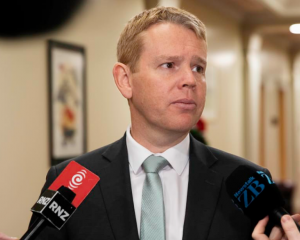We have had the panic, now it is time for the plan.
Next week Finance Minister Grant Robertson will deliver one of the most eagerly anticipated Budgets in recent times, a statement which will map out what the Government hopes will be the road to economic recovery following the Covid-19 pandemic.
The Budget, once a pivotal day on the Parliamentary calendar, has dwindled in significance in recent years as successive governments have progressively released elements of what was once a top secret document in a series of "pre Budget announcements" intended to snare easy headlines.
Come the relevant Thursday there is seldom a sense of surprise; literally, we had heard it all before.
May 14 will be different, because so little is known about how the Government proposes to rebuild after Covid-19.
This is not due to secrecy, rather it is because of the urgency of these rapidly changing pandemic days.
As has been often said in the past six weeks, we live in unprecedented times, and we live in uncertain times.
Mr Robertson’s task is far from simple; he needs to come up with solutions to as yet unasked questions, and deliver certainty at a time when nothing is like it once was and all the modelling in the world cannot tell us what Covid-19 might do next.
Mr Robertson will have to make an approximation of what income the government might earn, a guesstimate of how much it might need to spend to keep as many businesses afloat and social services functioning as it can, and then cross his fingers that something like his officials have predicted actually comes to pass.
The economic response to Covid-19 thus far has rather had the look of being made up as the Government is going along.
This is not a criticism; the Government has shown commendable flexibility in rewriting newly announced policies, sometimes two or three times in the same week, as shifting economic circumstances have dictated.
But this is not a luxury Mr Robertson can afford himself on Thursday.
Many businesses will be making calculations about whether to ride the Covid recession out now or fold their cards now on the basis of the Budget.
Many households will be waiting, grim-faced, worried about the future.
Aware of burning expectations, Mr Robertson has been doing his level best to dampen them down.
As befits the Sports and Recreation Minister, he has stressed that this Budget should be seen as part of a "rolling maul" of financial relief initiatives rather than a panacea or the ultimate statement on recovery support.
There is common sense in this approach — the waters ahead are still far too choppy for the New Zealand economy to expect plain sailing in the years it will take to recover from the Covid-19 recession.
However, households already starting to feel recession’s chill wind will be wanting Mr Robertson to crank up the economic heater now . . . and they will be wanting more than the already announced boost to the winter energy payment.
Businesses counting down to the end of the wage subsidy will want to know that the Government has still got their back.
It would be a shame if Budget 2020 is purely a "marking time" exercise, preserving as much of the Government’s now shattered debt ratio target in order to retain a reputation for careful stewardship.
However, neither can Mr Robertson splash the cash recklessly in the hope that kick-starts the economy.
Bold action is surely needed but it needs to be premeditated and specific, offering effective support where it can do the most good.
What business and households alike need from Budget 2020 is a belief the economy will be revived, and a sense of hope that the future may not be as bleak as forecasts suggest.
No simple task, but one which Mr Robertson can achieve with a precise and purposeful Budget, rather than one which prevaricates or potters.










